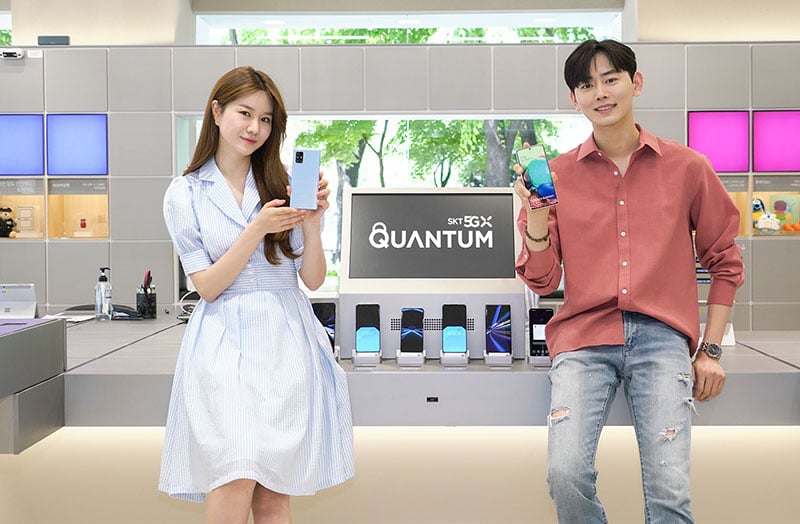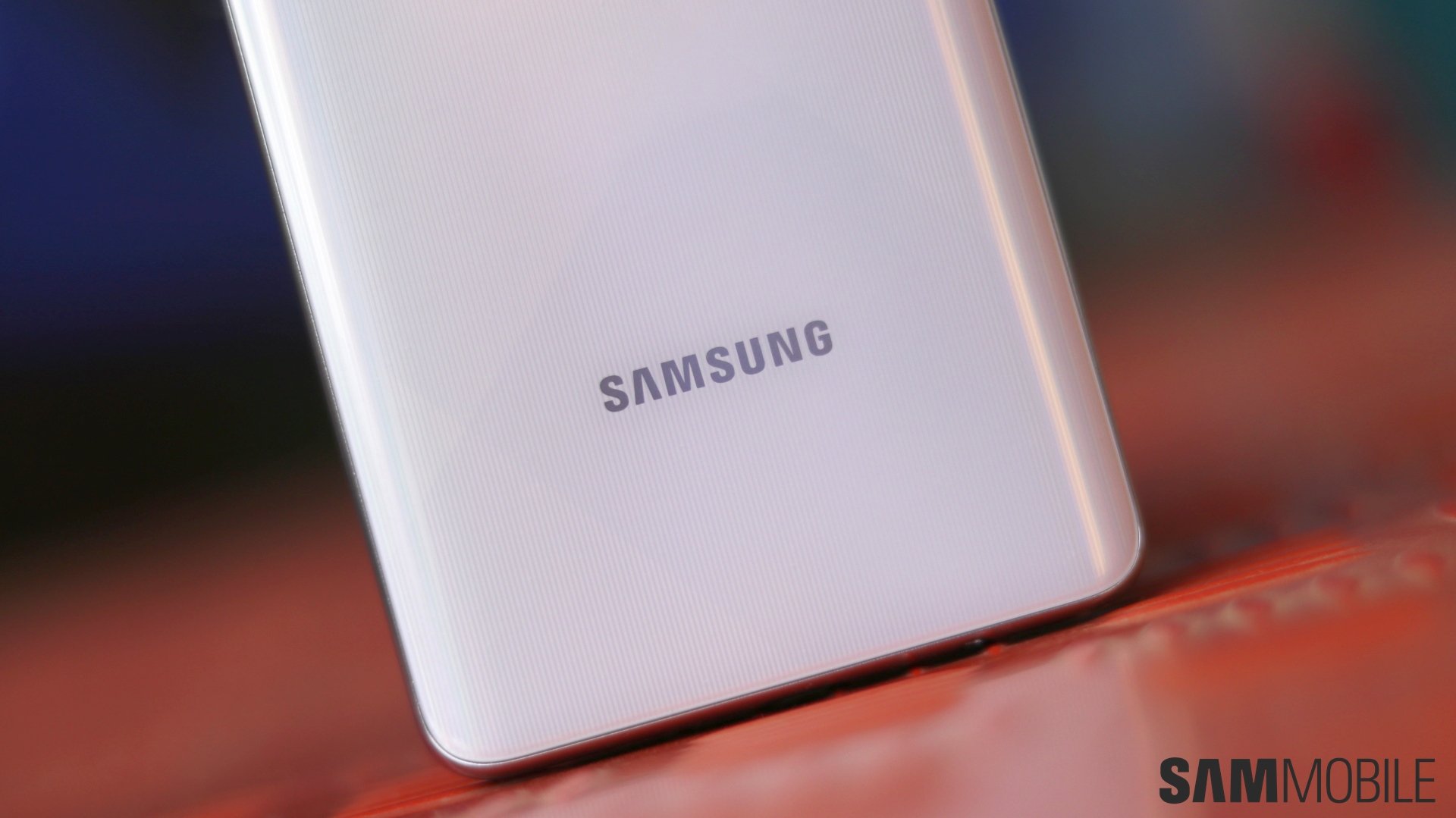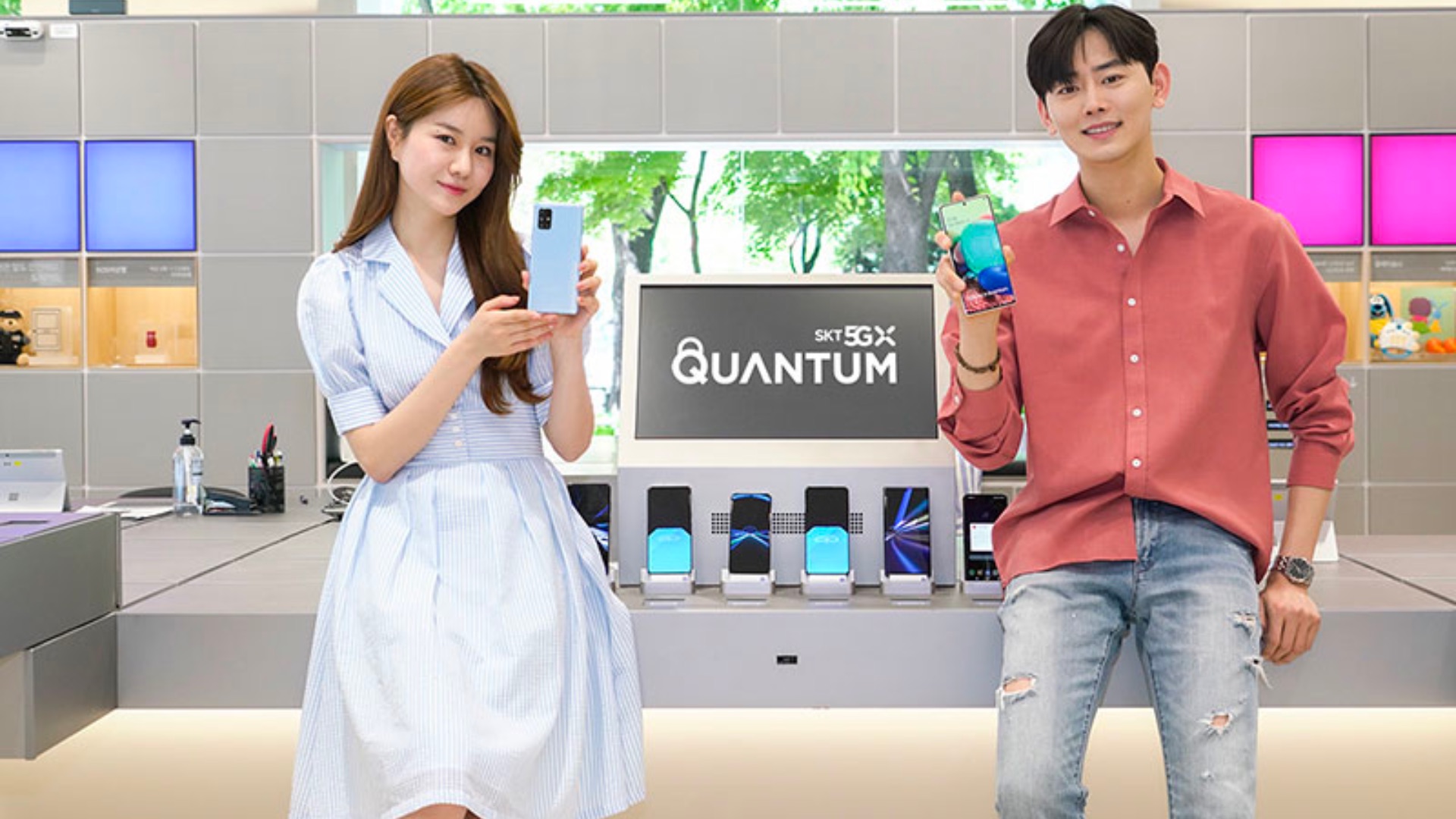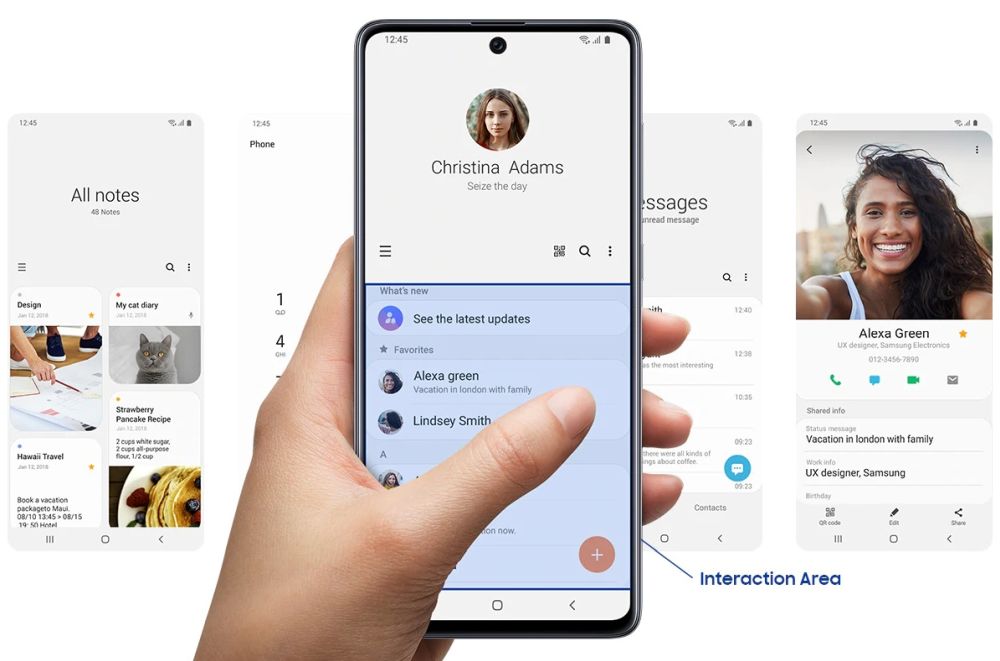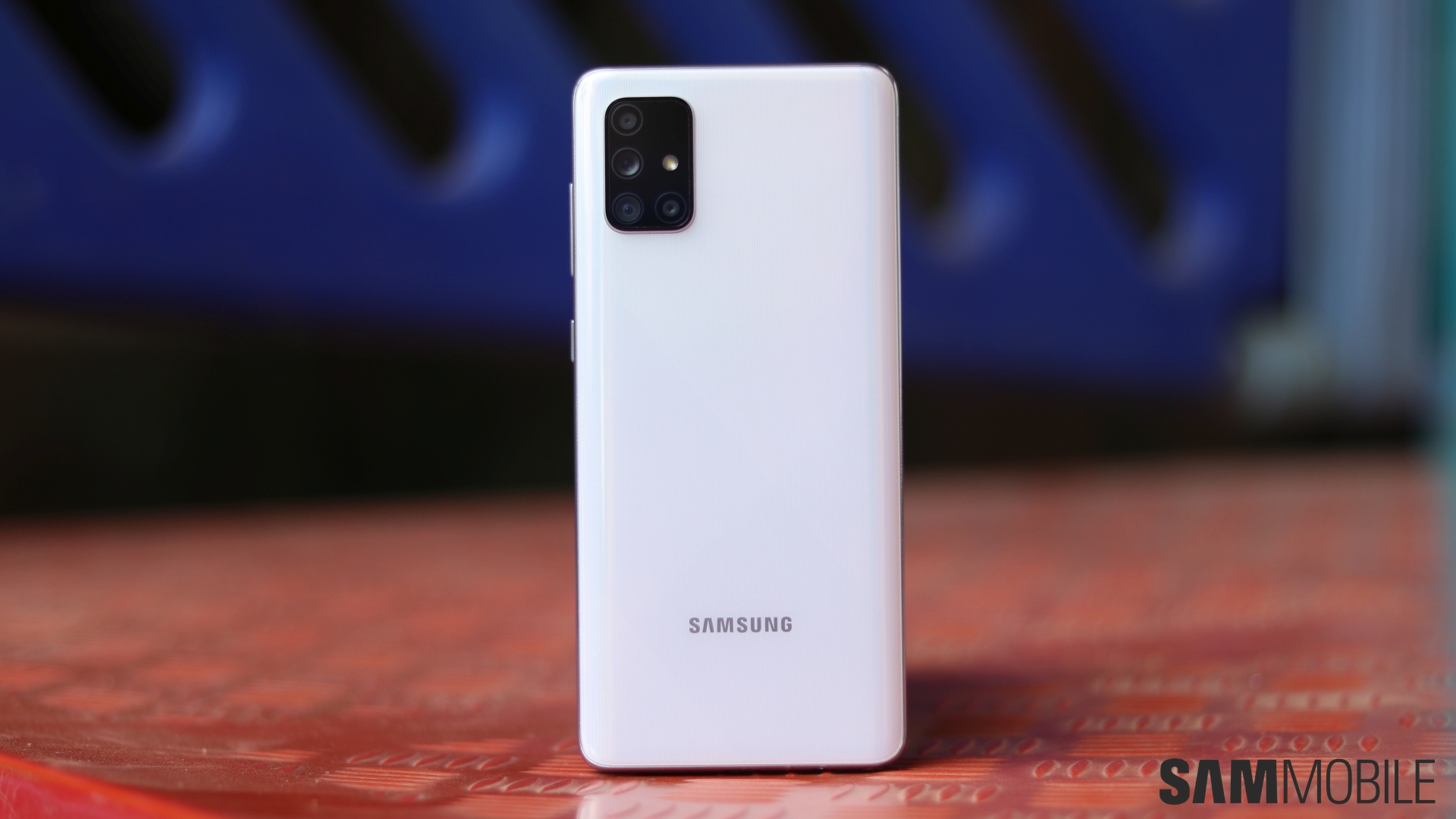
The Galaxy A Quantum will be available for pre-order starting tomorrow. The phone will go on sale in Korea from May 22. Those who pre-order the phone will be eligible to receive the Galaxy Buds for free. Those who purchase the Galaxy A Quantum after the pre-order phase will get a KRW 50,000 (around $40) discount coupon to buy the Galaxy Buds.
The phone features the SKT IDQ S2Q000 QRNG chipset that was developed by SK Telecom's Switzerland-based subsidiary ID Quantique. It generators random numbers through quantum-crypto technology and creates secure keys that cannot be predicted, thus enhancing the security of the device.
Galaxy A Quantum specs
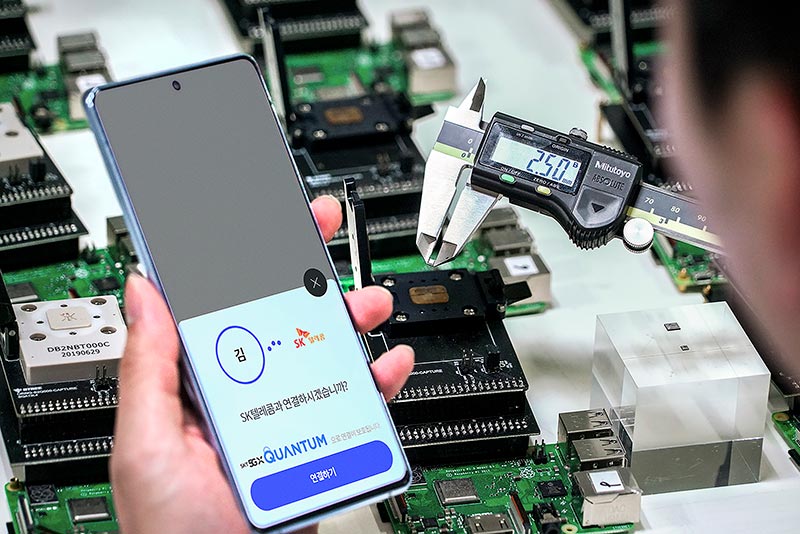
The Galaxy A Quantum features a 6.7-inch Super AMOLED Infinity-O display with Full HD+ resolution and in-display fingerprint reader. It has a quad-camera setup on the rear, consisting of a 64MP primary camera, a 12MP ultrawide-angle camera, a 5MP macro camera, and a 5MP depth sensor. At the front, the smartphone has a 32MP selfie camera.
The phone runs Android 10 with One UI 2.0. The Galaxy A Quantum is equipped with the Exynos 980 processor, 8GB RAM, 128GB storage, and a microSD card slot. Its connectivity features include GPS, 5G, LTE, Wi-Fi ac, Bluetooth 5.0, NFC, USB Type-C port, and a 3.5mm headphone jack. It is powered by a 4,500mAh battery and supports 25W fast charging.
It comes with Samsung Pay and a QRNG chipset. The phone will be available in black, blue, and silver.
How is the QRNG chipset used in the Galaxy A Quantum?
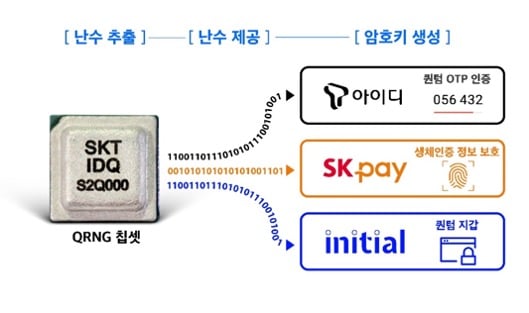
The SKT IDQ S2Q00, which is the world's smallest QRNG chipset (at 2.5mm x 2.5mm), uses an LED and a CMOS image sensor. It creates truly random numbers with unpredictable patterns. The CMOS image sensor is used to capture the quantum randomness from the image noise that is emitted by the LED.
The QRNG chipset enhances the security of various applications such as SK Pay, T ID login, and Initial. T ID is used for logging into various online services, including 11th Street, FLO, T Map, T membership, Wavve, Who, and others, and the service is used by over 19 million customers.
Initial is a blockchain mobile electronic certification service that is used to issue and submit various personal certifications without a need to reproduce a physical one. SK Telecom plans to expand the use of QRNG chipset and enhanced security for more services in the future. You can read more about the QRNG chipset works here.
